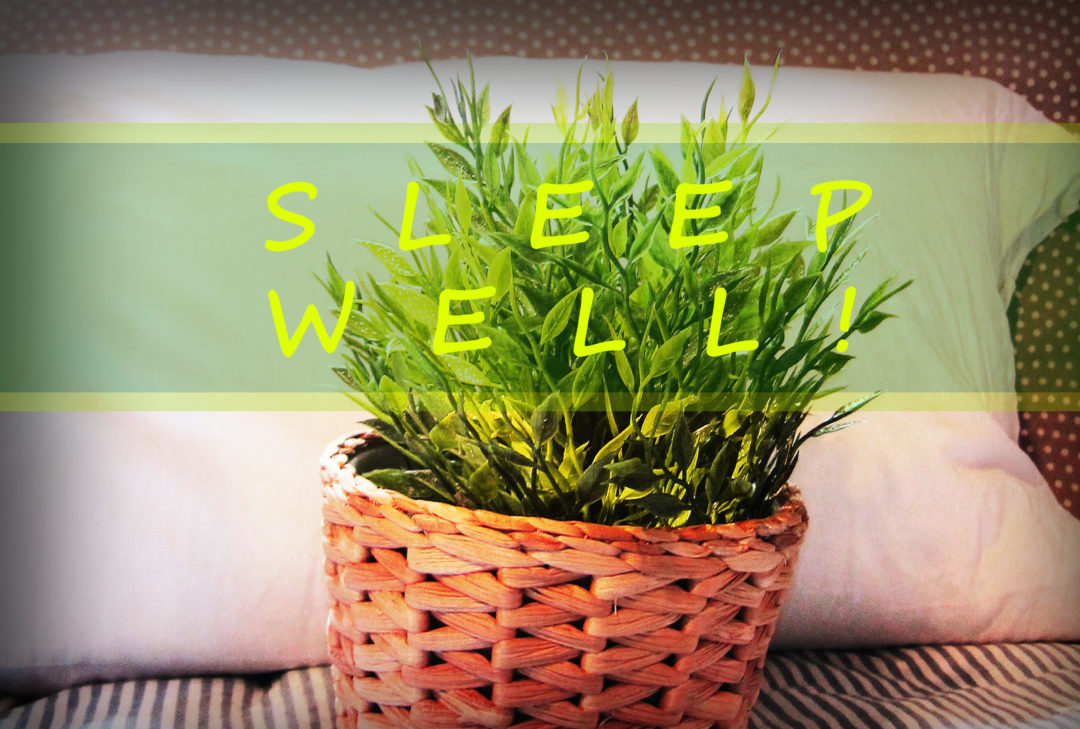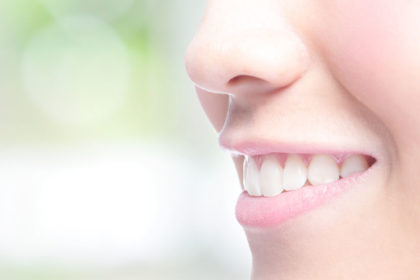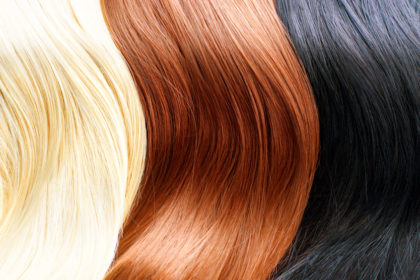Natural Ways to Help You Go to Sleep
Few things are as frustrating as lying in the dark, pin-prickles of restlessness all over, counting how many hours of sleep you will get if you fall asleep right now. And most unhelpfully, these calculations make things even worse. What to do?
There’s both a short term and a long term approach. Naturally, you want to fall asleep right now and be at least a half-wit tomorrow at the meeting/confrontation/plain old work. But if this is a recurring problem, you may wish to tackle it in the long run two.
Let’s start with the quick fixes, because chances are, you’re reading this in high irritation, lying in bed:
IMMEDIATE SOLUTIONS a.k.a. GO THE F*** TO SLEEP
- Eliminate Blue Light
Do you have a blue-light filter on the device you like to use to read (perhaps this article right now) in bed? Turn it on, or download the app (for instance on Google Play). It has been proven that the blue light emitted by electronic devices (including television) lots of people use before bed disrupts sleep. The human eye is a wonder of precision and ingenuity and its retina has some highly specialized cells that detect the blue light – daylight in other words – and let the brain know if it’s sleep time or play time. For one thing, registering blue light in hours well beyond their normal occurrence throws the organism into confusion of conflicting signals – it’s night-time, but it’s also daytime! For another thing, seeing blue light, your organism slows down the production of melatonin – the go-to-sleep hormone, and going to sleep becomes that much harder. Since melatonin takes a while to kick in, it is recommended to avoid blue light at least an hour before bedtime. There are more good reasons to be nice to your melatonin-producing brain – melatonin is an important fighter against free radicals in your body so suppressing it doesn’t harm only your sleep but also your whole body, some experts even cite cancer among the potential risks of long-term sleep (and melatonin) deprivation. - Minimize Electronic Radiation Around You
In other words, put your electronics in airplane mode. This should hold for any electronic devices that are near you when you sleep. Also keep any electrical device, including your electricity-powered alarm clock, at least 3 feet (1 meter) away from your head. - Have a well-chosen snack
Go make yourself a nice slice of bread with butter and jam and a mug of cocoa (or hot milk if you prefer it). It’s a good break from the horizontal stressing and the carbs can boost your serotonin levels, making you calm and drowsy, and milk contains tryptophan, an amino acid which is not recommended to eat as a supplement, but in a cup of cocoa or warm milk it seems to do the trick. A good choice of a 4 am snack is also a banana – it is rich in both carbs and potassium and potassium helps you stay asleep. - Chamomile tea?
The calming properties of chamomile are known to man (and woman and the occasional surprisingly well educated child) for a very long time and chamomile tea is a good, experience-proven remedy. Try going slightly weirdo English style and put a bit of milk in it – it actually tastes very nice and with the tryptophan in milk, you’re getting even more ammunition against sleeplessness. - Boost the right minerals
Especially if you are prone to cramps (in the calf for instance) or that irritating twitch in the eye, you may be deficient in magnesium which also plays a role in helping you fall asleep (the best form is Magnesiumglycinat). Magnesium is widely available either separately, or (even better) in a 1:2 ratio with Calcium (sometimes also with vitamin D3. It is estimated that up to 80 percent of Americans suffer from magnesium deficiency. A particularly effective form is a powder called CalMag which also contains apple vinegar. The apple vinegar is healthy in itself but also provides an acidic environment for the optimum absorption of these minerals.
The taste isn’t exactly great – some recommend improving it with juice. We’d advise sour cherry juice – as sour cherries have been linked to increased melatonin production. - Get the pressing matters out of your head
Switch on the light and make a list of all the things you know you must do something about. These open situations can be a very active pain in the neck and they make it very hard to let go and whizz off to Bedfordshire. Make it really like a list – one thing after the other, with a little line next to each one where you can later on put a triumphant check once it’s handled to your satisfaction. What you want now is just the list – nothing more, nothing less, don’t think about the how, the when, the what-happens-if-I-don’t. No particular organization in terms of importance is needed, “water the yucca” can be immediately followed by “research options for cross-border adoption” or “find an answer for George on whether snakes fart”. You will be surprised how this will ease your mind – in fact, we fully recommend it for daytime use, too. Makes it much easier to focus on whatever activity you now need all your concentration for. - Find the right sleeping temperature
Is it perhaps too warm in the bedroom? Open the window a bit. Sleeping in a colder environment is healthier – and easier. The National Sleep Foundation recommends temperatures around 65 degrees (18 degrees Celsius). And it’s so nice to snuggle up under the blankie… - Quick Relaxing Aromatherapy
Try a short warm bath scented with lavender. Warm water relaxes your muscles and lavender is known for its calming effects. It’s also a good break from lying in bed, trying to shut down your increasingly frantic thoughts. When choosing lavender oil, aim for natural extracts rather than synthetic perfumes.
However, if what was keeping you up last night wasn’t just the full moon and your problems with sleep are more persistent, getting through one night at a time is not the solution. You need to become more systematic. First of all, how much sleep do you actually need? Not everybody is the same of course and you will generally see what schedule you are doing best on. Some people are fresh as a daisy with 7 hours, somebody needs at least 8,5. For an average adult, the National Sleep Foundation recommends 7-9 hours per day. If you think you’re not getting what you need, here are some
LONG TERM SOLUTIONS
- Join the Dark Side
Make your bedroom as dark as possible – get rid of any charger or indicator lights (or at least shield them from the bed), get rid of lit alarm clock, put up some nice thick curtains to block off street lights. Sources of unnatural light (other than the moon and the stars) mess with our circadian rhythm – our daily biological clock, you could say. It’s like in point 1 above – the eye (even when it’s shut) perceives light and signals the brain that it’s rise-and-shine time and stops the production of every dreamer’s best friend – melatonin. Even if the light doesn’t wake you up, the conflict makes for more shallow sleep and lowers the sleep quality, making you more tired in the morning.
If you can’t do much about the level of light in your bedroom, at least try wearing an eye mask. - Delight in the Daylight
At the same time, indulge in lots and lots of natural daylight during the day. If you spend the day shut up in a darkened dungeon hunched over a computer, your night-time rest will suffer. The reason here isn’t only circadian rhythm, but also vitamin D3 which we get from exposure to UVB from sunlight or safe tanning beds. - Institute a 1-Hour Quaranteen on Blue Light
Get into a regime of avoiding blue-light emitting electronics (TV, computer, Kindle reader, phone etc.) at least 1 hour before going to sleep. The pineal gland in our brain which produces melatonin needs some warm-up time. - Exercise
Get some physical activity done during daytime. People who do regular exercise get better sleep. It doesn’t have to be a half-marathon – even mild exercise of some form improves sleep quality – as well as your mood! - Aim for regularity
Try to go to bed at roughly the same time every day and wake up at the same time too, even on weekends. The body gets used to the rhythm and it will be much easier to fall asleep when the time comes. If possible, follow the daytime/nighttime pattern in this. - Caffeine Only Until a Certain Hour
If you’re sensitive to caffeine, avoid any food or beverage containing caffeine from afternoon onwards – personal sensitivities may vary so play it by the ear, some have to forget about coffee as early as 1 pm, some can happily drink their steaming cups of joe in bed, reading. - No Alcohol Before Bed
Although it may seem like a good idea and indeed quite a few people use it as a sleeping aid, avoid alcohol before bed. Although it may help knock you out, it harms the quality of your sleep in several ways: it blocks REM sleep. It makes you wake up and go to the bathroom in the night more often. It may wake you up in the middle of the night – because alcohol meddles with the normal production of the chemicals body uses for normal sleep pattern. It may worsen your breathing – it’s no secret drunk people snore. And guess how you’re going to feel in the morning? - If You Smoke, Consider Quitting
Nicotine is, like caffeine, a stimulant providing your body with yet another hurdle to tackle before it can finally snooze. Also, if financial worries keep you awake at night, try using that time to calculate how much you’d actually be saving… The methods to quit are many and would justify an article of its own, but I personally have to recommend, after a surprisingly easy personal experience, is bioresonance. - Minimize Stress
If stress is your main concern, try these two tactics:- Every evening or afternoon, write a list of things you want to do the next day. This way, it is on a piece of paper in front of you and not running circles in your head. Keep this paper on your nightstand so you can add whatever other tasks/ideas may come to your mind. The next day you just go through this list, doing the items one by one and checking all the ones that are done, and the ones you didn’t manage to do you simply include in the list for the next day.
- Take a good, honest look at the people in your life. Is there somebody who loves spreading bad news and little else? Someone who only speaks in unpleasant generalities, e.g. everybody thinks, people say etc. etc.? Somebody in whose company you just feel bad, even if you maybe only realize it afterwards? Somebody who keeps making you feel stupid, unable, pointless? Somebody who keeps putting you down, covering it up with the likes of “Oh come on dude, I’m only joking, can’t you take a joke?”? Ditch them as fast as you can. If you’re not fond of confrontations, just quietly disappear, but don’t clutter your life and thoughts with bad people like this.
- Take a break from the news. Really, try it for a week. News make one feel like the world is about to end soon, like it’s a dangerous place, like you have to watch out constantly (and watch the news constantly) and be ready. Like it’s important to know that a train crashed in a country on the other side of the world with 67 people dead. It is important to know if you are then able and willing to go and do something about it – but there are so many such news every single day that that would be even impossible. News can make you feel like there are only a handful of good things happening out there. Try giving it a week of no news. It might help. Or not – you’ll see at the end of the week and decide for yourself.
Bad dreams?
Your sleep may be disturbed because you are suffering – long-term or short-term – from nightmares. If that is the case, we can strongly recommend vitamin B1, or thiamine. To enable it to work properly, you should balance it out with some vitamin C (you can do that during the day), but it is this vital vitamin which, if lacking, is behind nightmares. Lack of B1 is often encountered especially during periods of high stress or alcohol consumption so make sure you protect your dreams.
In Closing
Getting a good, regular, deep sleep is really important. It reflects on our psyche as well as our bodies. There’s probably no need to point out that those of us who are, for whatever reason, sleep deprived, tend to get snappy, lack attention, get emotional easily and generally handle less stress. But lack of sleep has a very grim long-term effect on our bodies, too. The badly sleep-deprived head towards obesity, their response to inflammation is weakened and they even run a higher risk of cancer. But don’t let this stress you, you’re doing something about it now and that’s great. We hope you will find our tips useful and that they will ensure you will get a lovely, refreshing and invigorating good night’s sleep.




